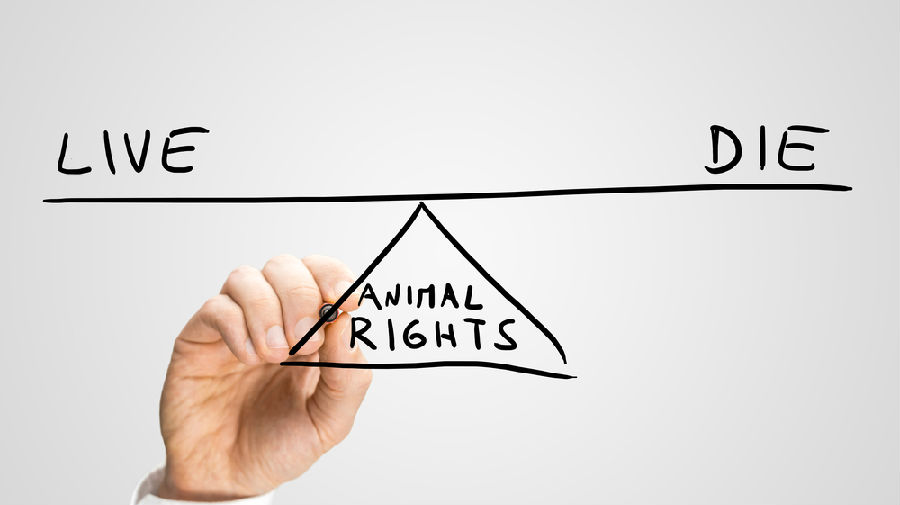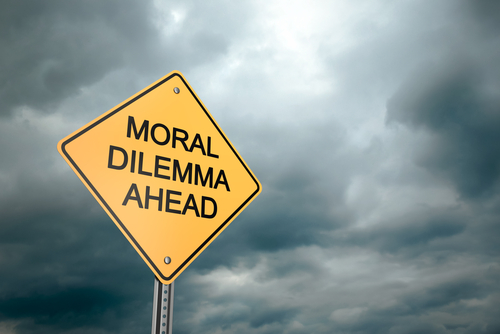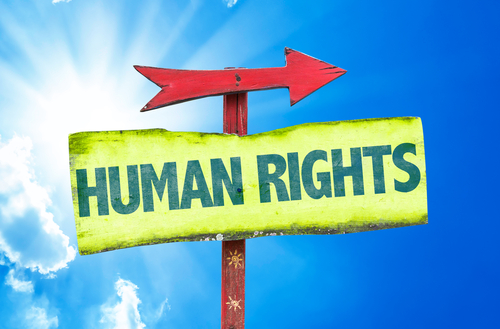(单词翻译:单击)
Euthanasia, from the Greek word meaning "good death", is the practice of assisted suicide with the intention of relieving pain and suffering. Euthanasia is also known as mercy killing or physician assisted suicide. Like all things that deal with life and death, it has been a controversial subject of debate due to its seeming infringement of a person's fundamental right to live. As a law, voluntary euthanasia is accepted in some countries, including some states in the United States and provinces in Canada. Euthanasia is also one of the most actively researched and debated subjects in modern bioethics. Surveys taken in the United States indicate that an estimated 46% of physicians agree that voluntary euthanasia should be allowed for certain situations, with 41% disagreeing altogether and 14% believe it to be circumstantial. Below are the key arguments for euthanasia, which highlight why it is our right as human beings as well as the benefits it presents.
安乐死又名无痛死亡或医生协助自杀,它源于希腊文,意为"善终",即通过协助自杀缓解疼痛和苦难。由于涉及人类基本的生存权利,安乐死跟其他对待生命和死亡的事情一样,也是饱含争议的话题。已经有一些国家从立法层面接受安乐死,其中就包括美国和加拿大的一些州省。在现代生命伦理学领域,安乐死也是饱受争议的主题和研究的热门方向之一。美国一项调查显示,约有46%的医生认为在特定的情况下应当同意实施自愿安乐死,而41%的医生则完全持反对意见,另外的14%认为应当根据具体情况而定。下面罗列一些关于安乐死的主要观点,重点阐释安乐死作为人类权利的原因及其带来的好处。
10.People have the right to die.
10.人们有选择死亡的权利

Often, the discussion revolves around the right to life; anti-euthanasia proponents argue that euthanasia infringes on a person's fundamental right to live. What they fail to see is that our "life" as human beings implies death. Without death, we do not have "human life" by its very definition. Like black and white or two sides of a coin, human life cannot occur without death. Therefore for those that argue that every man has the fundamental right to live, they unknowingly also agree that every man has the fundamental right to die.
关于安乐死的讨论通常围绕着生存权展开,反对者常有的说辞是:安乐死践踏了人类基本的生存权利。他们会忽略死亡是我们人生的归宿,如果没有死亡,"生存"将无法定义。如同黑白相对、硬币具有正反面一样,人类生命的诞生与消逝本来就是一个整体。因此,那些支持每个人都有基本生存权利的人们还没意识到自己也同意一个观点:每个人都有选择死亡方式的基本权利。
Because we can determine the course of our lives by our own will, we have the right to live our lives and determine our own course. Naturally it follows that the same self-determining capacity we have as human beings also gives us the fundamental right to determine how we die. It is also important to consider that the right to life has no say over the right to die. The right to live and the right to die are two separate, although related rights. They are also mutually exclusive in the sense that the right to live concerns itself only with self-determined life and ends with the right to die. The right to die on the other hand begins where life ends in death. While you live, you exercise your right to life; when your life ends, you exercise your right to die. It is important to consider that we refer to self-determined or natural death and not death resulting from someone directly removing from you your life, thereby restricting your right to live. If such significant weight in this sense is given to our right to live, should we not also give equal weight to our right to die.
我们可以自己决定生活的历程,我们有活得痛快的权利,我们可以规划自己生命的航向。自然地,人类自我决定的能力也赋予我们决定如何死亡的基本权利,需要强调的是,生存的权利并不高于选择死亡的权利。生存权和死亡权是相互独立而又相互关联的。生存权关乎自我选择生活而死亡权关乎自我选择生活的结束,在这个意义上二者是相互排斥的。从另一方面来看,选择死亡的权利在人们行将就木时开始。当你活着时,你行使的是生存权;当你的生命走时到终点,你行使的是选择死亡的权利。需要强调一点,我们这里谈论的是自杀或自然死亡而非命丧他手而被剥夺生存权利。我们如此重视保障自身生存的权利,那么,对于死亡权利的尊重是不是也应该置于同样的高度?
9.People have the explicit right to choose.
9.选择权是人的基本权利

Beyond the philosophical implications of man's right to live or die lies man's explicit and fundamental right to choose. Everything is touched by this explicit right, from what you will have for breakfast to what you will believe, what your opinions are and what you do with your life. The society that man has built is founded on this very right, and evolves because our inherent nature is explored. Regardless of the outcome, no one can question our right to free will. The right to choose is fundamental and applies to all elements of "human life", which by the nature of human life, includes the right to choose how you die. As an example, a terminally ill individual who is currently under significant pain may choose to die with dignity, as is his right. To deny him this is to deny him his personal autonomy and is an act that is trespassing on his humanity. While concepts such as dignity are defined by social majority, an individual, possessing all the rights of a human being, may perceive a dignified death to be preferable to constant suffering. He may decide on euthanasia, and this choice should be available to him. Very simply, this is his right to choose, as equally as he made his choices when faced with circumstances in life. It cannot be questioned should he decide to act on it. In the case of euthanasia, we simply request assistance to facilitate this right of choosing how to exit this world.
抛却哲学范畴的生存权和死亡权不谈,人们应明白"选择"是其生而为人的基本权利。一个人应知道选择权与一切事物息息相关,从你早餐要吃什么到你的信仰,从你的意见到你的生活。人类社会构建在这一特殊权利的基础上,社会的进步则依托于人类热衷探索的内在本质。无论结果如何,没有人可以质疑我们思想自由的权利。选择是我们的基本权利,存在于"人类生活"的方方面面。这一权利体现人的本性,包括选择死亡方式的权利。举个例子,一个身患绝症的人在长期忍受剧烈疼痛的情况下可以选择有尊严地死去,这是他的权利。而否认他具有选择死亡的权利,就是否认他个人的自主权,这是对人性的侵犯!像尊严这一类概念都是由社会的多数人定义。一个享有人类一切权利的个体可能会察觉,比起长期遭受病痛折磨,有尊严地死去会是更好的选择。他应该享有选择安乐死的权利。简单地说,这是他的选择权,跟他面对其他人生境遇时的选择权是同等的,他是否行使这一权利的决定不应当受到质疑。在一个人选择安乐死的情况下,我们能做的,只有请求协助其如何离世。
8.Euthanasia is not immoral.
8.安乐死符合道德

For something to be immoral, it would have to violate moral laws or norms. The argument of anti-euthanasia proponents is that euthanasia is immoral because life must be preserved and protected. The preservation of life is, however, subject to the self-determined choice of the person and not the choice of the physician. As an example, murder infringes on a person's right to life by taking away the element of choice in the persons death. No infringement is done when it is the person who chooses how to die. For a physician to deny the person his right to die when under intense pain and suffering is effectively forcing them to live a life without what they believe is their dignity, a life of suffering and eventual death (in the case of terminally ill patients). While the intentions may be good, no person has the right to demand of another person to live a life of suffering, in fact, that is immoral as it removes their right to choose. Euthanasia facilitates the choice making it in fact the compassionate choice and sympathetic to that person's dignity. It is also important to note that those that argue to preserve life despite the patient being terminally ill and in extreme pain are usually not the patients themselves and therefore removed from the consequences of the decision.
不道德的东西违反法律规则。有人说安乐死是不道德的,因为人们必须保护生命。但生命的选择权应该属于该病人而不是该病人的医生。比如,杀人犯不顾被害者的意愿剥夺了他的生命选择权,这就是侵犯了被害者的生存权利;而一个人自己选择以某种方式结束生命时就不存在他人对他的生命权利的侵害。当医生强制一个饱受病痛折磨的人活下去时,实际上他是否定了病人对自己生命的决定权,从而让病人继续忍受病痛和尊严的煎熬,直到最终死去。这对于晚期病人来说尤其残忍。虽然医生出于好意,但任何人都没有权利要求一个人忍受病痛的折磨活着。事实上,这就是剥夺别人的选择权,这是不道德的。而安乐死实际上为病人提供了一个选择,让他能够以一个比较人道的方式离开这个世界。还有一点不容忽视,一般情况下,反对安乐死的人不是晚期病患,也没有遭受病痛的折磨,所以没有资格讨论安乐死是否符合道德。
7.Euthanasia protects self-hood and human dignity.
7.安乐死保护自我尊严

Self-determination is one of the key elements that make us human. It is the ability to determine our destiny as individuals and is facilitated by our ability to think for ourselves. Imagine a life where an illness has left you incapable of conducting the basics of life; you are unable to breathe, move or even think for yourself. You have effectively removed your ability to self-determine, arguably a significant element in being "human". Our sense of "self" is created as we progress through life. We grow our personalities as human beings by our choices and experiences. This sense of self is the foundation of our human dignity.
自主决定的能力使我们人类与动物不同,是人类掌握自己命运的体现,并且受人类"利己"本能的影响。试想一下疾病让你丧失了所有基本生活技能,你再也不能够自己呼吸、活动、甚至思考;实际上这也意味着你失去了自主决定的能力–而这是人类的重要技能之一。人类的自我意识随着我们生活经验的积累而产生。我们通过不断选择和尝试形成了人类的特有品质。正是自我意识形成了人类尊严的基础。
Now, go back to the example of the person who can no longer breathe, move or even think for himself, and add the element of extreme and constant pain to the point where they prefer death to living this way. Over time, because of this experience, the person will eventually lose sight of their "self", when they could move around, form opinions and self determine. This will all be a distant memory, and the most real thing to them will be the constant state of pain they are in. They won't even be able to cry out in pain despite the pain. Seem far-fetched? Consider Tony Nicklinson, whose bid for euthanasia was rejected multiple times. Tony Nicklinson was diagnosed with a disease that prevented him from moving any and all muscles in his body. After his bid was denied, he decided to starve himself to death, which took a week without food. Another example is Kelly Taylor who starved herself for 19 days trying to die. Without the option of euthanasia, their quality of life will continue to deteriorate the same way Tony and Kelly had endured. They will eventually die, but in what state? Will they go out in a state of dignity? Euthanasia can provide them with the opportunity to finish their life keeping their human dignity intact.
现在回到刚才的话题,当人再也不能自己呼吸、活动、思考,还得常常忍受极端又频繁的痛苦,生不如死,该怎么办?随着这些痛苦的积累,他最终会丧失"自我"–不能自由活动、发表观点、自我决定。以前许多轻而易举就能做到的事情都会变得遥不可及,而令他们感受最深的只剩没有尽头的苦痛。而他们甚至不能大哭以表疼痛难受。觉得不可思议?多次申请安乐死都被拒绝的汤尼·尼克林森就是这样。自从被诊断出患病,全身肌肉逐渐丧失活动功能,多次申请安乐死被拒绝后,汤尼绝食一个星期后离开了这个世界。凯莉·泰勒也曾尝试绝食19天来结束生命。没有安乐死,更多人会像汤尼和凯莉一样,生活变得越来越遭。他们最后会以怎样的状态死去呢?能否带着尊严地死去?安乐死就能给他们机会死得好看些,带着尊严而死。
6.Euthanasia does not harm to others.
6.安乐死不会危害其他人

Because people will naturally have different interests, it is not uncommon to have conflicts of interest. When conflicts arise, it is the goal of civilized society and the state to ensure the resolution of conflicts without the infringement of fundamental human rights. These rights are protected above all others and their infringement is punished severely. That being said, euthanasia as a choice infringes on no such fundamental rights. Death by its nature is a private affair. Assisted suicide (as is the case of euthanasia) involves direct harm and the termination of life only to the individual who has requested it. One cannot request euthanasia for another "competent" person. If this is the case, it will then be a question of murder instead. The process of euthanasia does not restrict or infringe on anyone's fundamental rights and therefore does no harm.
每个人天生都有不同的利益,自然会有利益冲突。有了冲突,文明社会和国家的做法是在没有侵犯基本人权的基础上化解冲突。人权至高无上,侵犯人权将会受到严重惩罚。话虽如此,安乐死作为一种选择,却没有侵犯这一基本权利。本质上,死亡是人们的私事。协助自杀(比如安乐死)却只对要求安乐死的人造成直接伤害以及终结其性命。人们不能要求身体健康的的人安乐死亡。如果有这样的案例,那么反而会被质疑这是谋杀。安乐死的过程没有限制或者侵犯任何人的基本权利,因此安乐死是无害的。
审校:嘉珈Alison 来源:前十网


